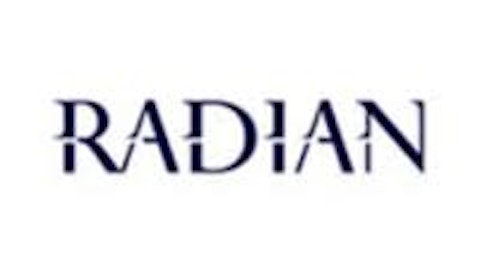They say, “A lot can happen over a cup of coffee.” But the apt saying should be, “A lot has to happen, for a cup of coffee.” The snapshot attached below, captures the footfall on the newly launched Starbucks Corporation (NASDAQ:SBUX) outlet in the heart of New Delhi. But trust me, this picture doesn’t cover even half of the footfall.
India is resided by nearly 1.24 billion people, and such images are common in almost all popular metropolitan joints. The huge Indian population presents immense growth potential to almost all retail businesses in the country, and this is one of the reasons why the launch of Starbucks in India was long awaited.

Starbucks operates in 61 countries with over 18,000 stores around the globe, but its Asia-Pacific division operates with only 4,000 stores spread in 12 nations. Its management believes that growth lies in the Asia-Pacific region, and plans to have 1,500 stores in China by 2015, up from the existing 700 stores. Howard Schultz (Chairman and CEO) added, “We continued to be awed by the overwhelming customer response to our first four stores in Mumbai.” The coffee chain jointly operates with Indian based Tata Coffee, which not only reduces its initial investment for new stores, but also saves it time for acquiring necessary expansion approvals.
Talking about numbers, Starbucks opened 125 new stores in Q1FY13, and 452 new stores in FY12. The company reaffirmed its aim to open 1,300 new stores in FY13, which means its store count would surge by nearly 7%. Most of these expansions will be in Asia-Pacific, where wages are way lower than their American counterparts. This not only allows the mega-chain to realize immense growth potential, but also at a cheaper cost.
A Key Acquisition
As if this was not enough, the coffee behemoth recently completed the acquisition of premium tea brand, Teavana for $620 million. Over the years, several surveys have been conducted to determine whether tea or coffee is the most preferred beverage. But there was no clear winner, and it has been concluded that both beverages have an almost equal share of consumers. The acquisition of Teavana tea means that Starbucks won’t be catering to a niche of coffee drinkers, which is a huge positive for the company.
Teavana tea currently operates with only 300 stores. Naturally Starbucks would be able to increase its same-store-sales by serving premium tea at its existing global network 18,000 stores. The expansion would be rapid because Teavana won’t have to make initial investments to open new stores, or to obtain necessary approvals and permissions for international expansions. The management at Starbucks believes that Teavana is the perfect complement to its existing Tazo brand, and aims to completely reinvent the $40 billion tea industry.
Improving Margins
Over the last 2 years, coffee prices have plummeted by nearly 54% due to record production. Uganda is one of the top exporters of premium coffee beans, and its farmers have been severely hit. Stepping up to the occasion, the chairman of National Union of Coffee Agribusiness and farm enterprises (NUCAFE) in Uganda, has advised its farmers to ramp up production to counter low margins.
Naturally, when demand is outpaced by supply, prices plunge, and I believe coffee prices will continue to remain under pressure in FY13. This would be good for Starbucks right! According to the management of Starbucks, the retail chain would be able to save around $100 million annually if coffee prices remain at current levels.
Wrap Up
History has shown that organized retail eats up the market share of small and independent retailers. India largely consists of small retail chains (except for Future group), and to take advantage of this growth potential, both Wal-Mart Stores, Inc. (NYSE:WMT) and J.C. Penney Company, Inc. (NYSE:JCP) have also entered India.
Wal-Mart has tied up with Bharti group, and is currently awaiting the introduction of goods and services tax before planning full scale expansions. The retail giant reported a net margin of 8.6% in the holiday quarter, but received a neutral rating from JPMorgan. According to Wal-Mart, the rise in taxes, deterred people from shopping in the holiday season which eventually hurt its sales. The outlook remains weak, because Wal-Mart caters to the poor and middle classes, which are experiencing a financial crunch due to rising natural gas and petroleum prices.
J.C. Penney is however operating with an online retail store in India, but its premium pricing has been the center of its problems. Last month, UBS downgraded J.C. Penney stating that holiday season sales could be weaker than expected, and doubted its ability to open new stores on schedule. UBS set a price target of $13 per share for J.C. Penney. Going a step further, Moody’s Investor’s Service downgraded the company to junk grade status, stating that “it will take a big hit as a result of the need to clear excess inventory.”
But Starbucks seems to be the perfect stock. Its debt/equity stands at a mere 11% and the company currently enjoys an ROI of nearly 25%. It’s acquisition of Teavana and subsequent expansions in India are a huge positive for the company. The street was already impressed by 452 new store openings last year, and the 1,300 new openings scheduled for this year, could present a blockbuster year for the coffee giant. I think Starbucks is worth a buy rating.
The article A Perfect Investment Opportunity? originally appeared on Fool.com and is written by Piyush Arora.
Copyright © 1995 – 2013 The Motley Fool, LLC. All rights reserved. The Motley Fool has a disclosure policy.





